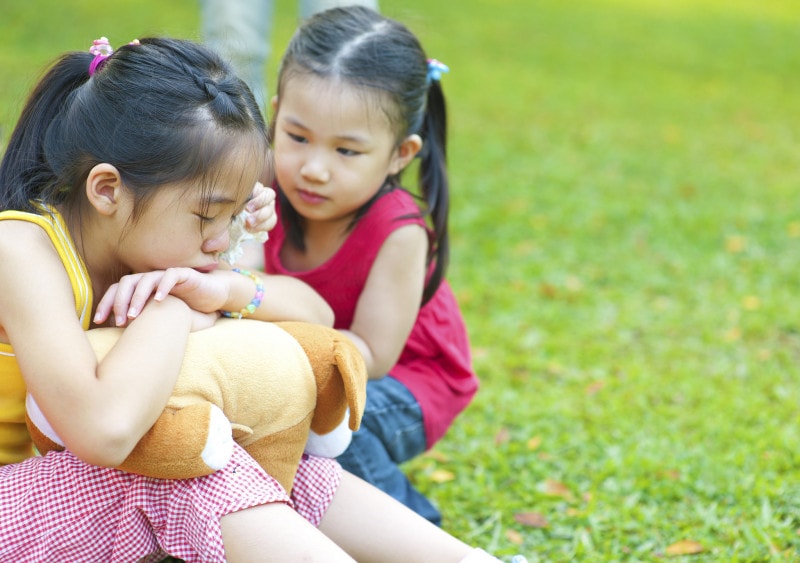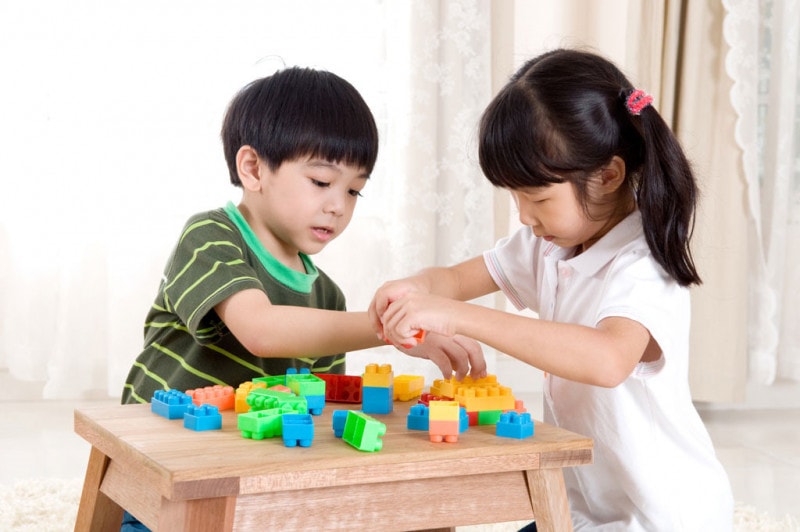6 Simple Ways to Teach Children Empathy
How to foster empathy in children is a question many parents ask. Here are six ways to teach your child empathy, whether they are a toddler, preschooler, or school-age child.
- 1. Teach children about emotions
Children cannot understand what others are feeling if they do not know how to name their own emotions. As your child's day goes on, try to name the emotions your child is feeling, and the emotions you are feeling yourself.
 |
For example: "I see you were a little disappointed when there was only one cookie left, didn't I?"; "Mom was worried when the car wouldn't start"...
No child is too young to begin hearing emotion words and learning about what they mean. Understanding your own emotions is the first step to understanding the emotions of others.
- 2. Read and watchtelevisiontogether
Even the simplest textbooks will have characters your child can empathize with. Try discussing the emotions the characters are feeling as the story progresses, and what is happening on screen. Ask questions like, “Why is this character doing that?”; “What is he thinking?” etc.
- 3. After a conflict occurs, discuss how people feel.
When your child is arguing or fighting with a sibling, that is not the right time to discuss feelings. But when the children are separated and have calmed down, that is the time to turn the issue around and talk about each child’s feelings.
Young children can be guided to accurately identify what they were thinking or feeling at the time, thereby helping them to express their emotions more appropriately.
For example: "You seemed a little frustrated when your friend drove your car, didn't you? I think that's why you were fighting. Fighting isn't something a good boy would do, but next time you could say to your friend, 'It's my turn now, and I'll give you the car when my turn is over.'"

- 4. Let your children see how you resolve conflict in your life.
Most people argue in front of their children, even though you should limit this. The key to ensuring that any conflict that does arise does not negatively affect your children is to ensure that if you argue in front of your children, you also resolve the issue in front of them.
Obviously, if you can't control your tone and language, wait until your child is out of your way, but there's a good rule of thumb: If your child never sees conflict resolution in a relationship, they won't be able to resolve it themselves in their own relationship later on. But it does require cooperation from the other person to get the problem resolved.
So if you and your husband are arguing about, say, dividing up household chores, let your child witness you compromise on who will do the laundry or who will drive the kids to soccer. This will help your child see that arguing is normal, that it can lead to productive compromises, and that people still love each other very much even when they disagree.
For example: "I know you're tired after work, so would you like me to drive while you iron the clothes, and then we can fold them together?"
- 5. Speak for those who cannot speak for themselves
Children often show empathy toward infants who naturally elicit empathy, as an evolutionary adaptation to being cared for by adults. To take advantage of this phenomenon, try discussing with your child what an infant (or pet) might feel.
For example: "That baby looks sad. Do you think something is wrong? Do you think he's hungry or tired?"; or "The baby is nuzzling Grandma. Is he trying to get to know her?".
- 6. Be a role model for those who are different
Children are often drawn to people who are different, such as children who often ask loudly, "What is that, Mommy?" when they see people in wheelchairs. If a child is curious about a person with a disability, don't just emphasize the difference. Befriend the person and show your child that the person is just like them, not different. Often, the person will explain their disability to your child if the child is taught to ask respectful questions.
These are just a few tips to help your child develop empathy and kindness. However, there is nothing better than being a role model yourself and letting your child watch and learn from you. Your child will learn the most from watching you interact with others in a kind way.



